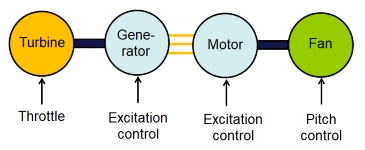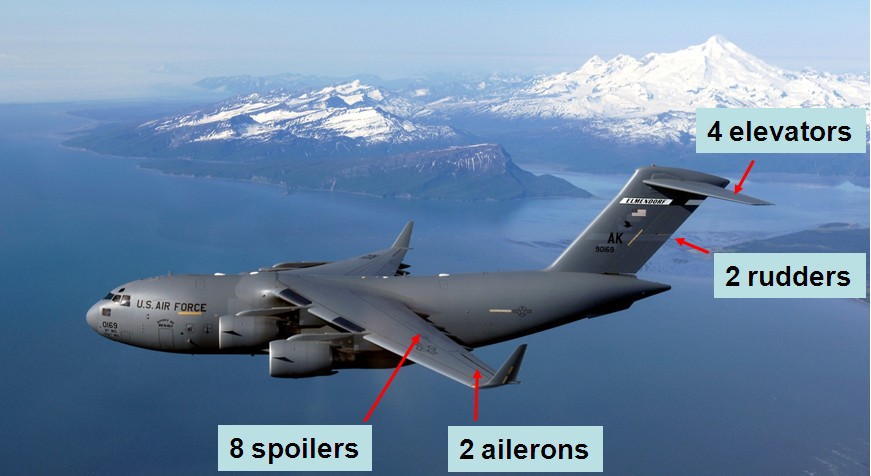
 |
Our research has produced coordinated control methods for a motor/generator set as shown on the picture, where the generator and the motor are doubly-fed induction machines with a direct stator connection and the rotor currents are regulated by reduced-size power converters. We are also investigating configurations where the motor is a permanent-magnet synchronous motor or a cage rotor induction machine. |
| The general objective is to maximize the performance of electric motor and generator drives. Algorithms have been developed using nonlinear and adaptive control techniques and, more recently, using complex-variable models. Of current interest is the development of new control methods for brushless doubly-fed induction machines. |
 |
Reconfigurable flight control laws were evaluated that automatically adjust after failures or damages (see, for example, the results of our flight tests). As part of this effort. algorithms were also developed that optimize the use of multiple, redundant control surfaces (the so-called control allocation problem). In the example of the C-17 aircraft shown on the picture, there are 16 control surfaces that can potentially be controlled independently. Currently, we are investigating the use of control allocation methods in a new and very different application area: multi-modular power electronic converters. |